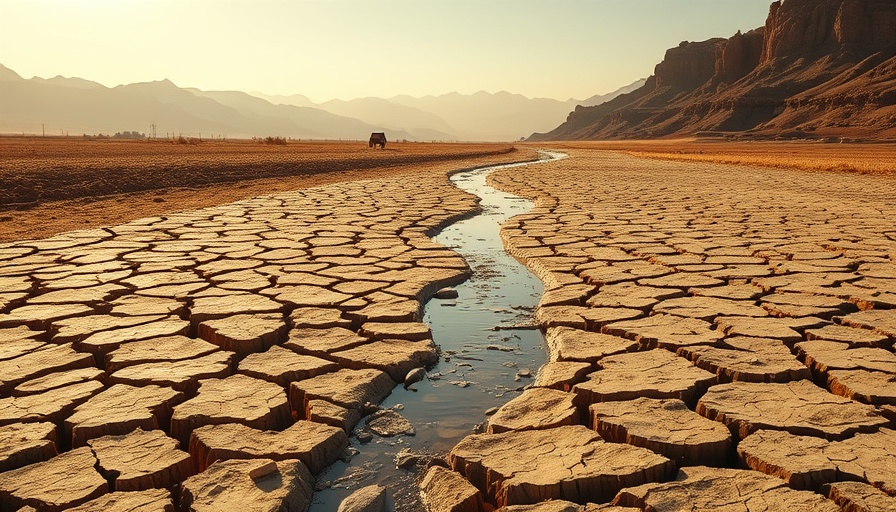
Water Scarcity: A Growing Crisis for 40 Million People
The Colorado River, a vital resource for approximately 40 million Americans across seven states, is facing unprecedented challenges. As reports indicate, chronic overuse and drought driven by climate change have severely depleted its water flow. The current situation is critical; state authorities must decide by 2026 on new rules for sharing water supplies. Failing to reach a consensus could compel federal intervention, leading to further complications in water management.
The Push for Sustainable Practices
In light of this impending deadline, several environmental advocacy groups have pushed for measures aimed at minimizing water waste, particularly in California, Arizona, and Nevada. Their petition to the Bureau of Reclamation emphasizes ensuring that water use adheres to definitions of "reasonable" and "beneficial use." While the concept is clear in principle, its practical application remains ambiguous, sparking debates about what constitutes fair use of water resources.
Coping with the Agricultural Impact
One crucial aspect that complicates the water crisis management is its potential impact on agriculture. Farmers, like Larry Cox, who rely on the river for irrigation, are understandably worried. Water cutbacks pose serious risks not only to their livelihoods but also to the food supply chain, ultimately affecting consumers and businesses alike.
What Lies Ahead?
As climate patterns continue to shift, the future of the Colorado River remains uncertain. Mark Gold from UCLA warns, “We don’t have a management future for the Colorado River right now, and it’s getting pretty scary.” This statement underscores the need for innovative solutions and collaborative governance to address water scarcity effectively before the situation escalates into a more significant crisis.
Steps Forward: Solutions for Sustainable Water Use
The question remains: How can stakeholders balance water demands in a sustainable manner? To avoid federal intervention, proactive measures must be taken by state governments, farmers, and corporations. Establishing clear guidelines for water use and promoting conservation practices could be the key to creating a sustainable future for those depending on the Colorado River.
Collaborative Efforts: A Necessity
A collaborative approach among the states dependent on the river is not just beneficial; it's necessary. Engaging diverse stakeholders in the conversation around water use and conservation can lead to innovative strategies that prioritize both agricultural needs and environmental protection.
Taking Action Now for Future Generations
In this time of urgent need, all stakeholders in the business community, from agricultural leaders to local entrepreneurs, should advocate for water conservation and sustainable practices. By embracing corporate social responsibility and supporting initiatives focused on sustainability, businesses can ensure not just their long-term viability, but the health of the Colorado River for future generations.
 Add Row
Add Row  Add
Add 



Write A Comment